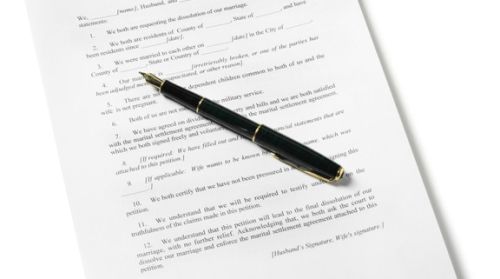Menu


Call Today (559)222-4891
Call Today (559)222-4891

California is a no-fault state for divorce. This means that a spouse does not need to prove that the other spouse committed any type of marital fault to legally end the marriage. In addition, a spouse does not need the consent of the other to part ways — if a spouse refuses to sign divorce papers, the petitioning spouse can still proceed with the action.
In order to commence a divorce action in California, you must first file the divorce papers with the court in the county where you live. Specifically, you must have resided in the county where you are filing the divorce action for three months or more before you can submit the petition. You must also have been a resident of the state for at least six months.
After the divorce papers have been filed with the court, they must be served on your spouse. This can be done by personal service or through the mail with notice and acknowledgement of receipt. In some cases, a spouse may refuse to cooperate and sign the proof of service. Critically, this is the document that states they received the divorce papers — signing it does not mean that they agree to the divorce terms.
However, if your spouse does not wish to sign the acceptance of service when they are personally served with divorce papers — or they are evading service — you can still move forward with your divorce. A process server can deliver the papers to your spouse and submit a proof of service affidavit to the court.
Those who have been served with divorce papers in California have up to 30 days from the date they have been served to respond. But sometimes a respondent spouse may not want to cooperate with the divorce process or will try to ignore that divorce proceedings have been commenced. Importantly, if your spouse does not acknowledge the service of the papers, it won’t stop the case. Instead, you may be granted a “true default divorce.”
California courts may approve a default divorce if the following criteria are met:
When a default divorce is granted, the respondent spouse gives up their right to have a say in the results of the case. Typically, the petitioning spouse will be given the relief they requested, and the outcome of the issues that must be decided to obtain a divorce — such as child custody, child support, spousal support, and property division — will be granted in their favor.
A default divorce can occur when the respondent spouse will not respond to the divorce petition. If a spouse believes they can evade the process server and delay the divorce, a judge might permit the petitioner to post the divorce notice in the newspaper or serve the notice by certified mail. If the respondent still does not appear in the action after alternative service has been effectuated, the process for a default divorce can begin.
A divorce cannot be rescinded once the judgment has been handed down by the court. However, a spouse who has had a default judgment against them may be able to request that the court set aside the judgment for good cause. To reverse a default judgment, the moving party must show that they mistakenly did not take action by their own mistake, inadvertence, surprise, or excusable neglect. Default divorce judgments may also be set aside if the summons was not properly served, or the judgment was obtained through unethical practices.
Although both types of divorce are generally faster than going through litigation, it’s crucial to know the difference between a default divorce and an uncontested divorce since these two types of divorce are commonly confused. An uncontested divorce is when both spouses agree to the divorce — usually they will work out a settlement through negotiations or mediation. With a default divorce, the respondent spouse simply fails to respond to the divorce papers or does not appear in the action.
If your spouse has not responded to service of divorce papers, you may be able to proceed with a default judgment. A knowledgeable divorce attorney can advise you regarding your options and guide you through the process. Providing dependable counsel and high-quality legal services, The Law Offices of Rick D. Banks works with clients throughout Fresno and the surrounding area for a variety of divorce and family law matters, including default divorce cases.
The Law Offices of Rick D. Banks has been helping clients throughout Fresno and the surrounding area with their divorce and family law matters for over 20 years. To schedule a no obligation consultation, call (559)222-4891.
© 2024 The Law Offices of Rick D. Banks|Legal Disclaimer|Privacy Policy